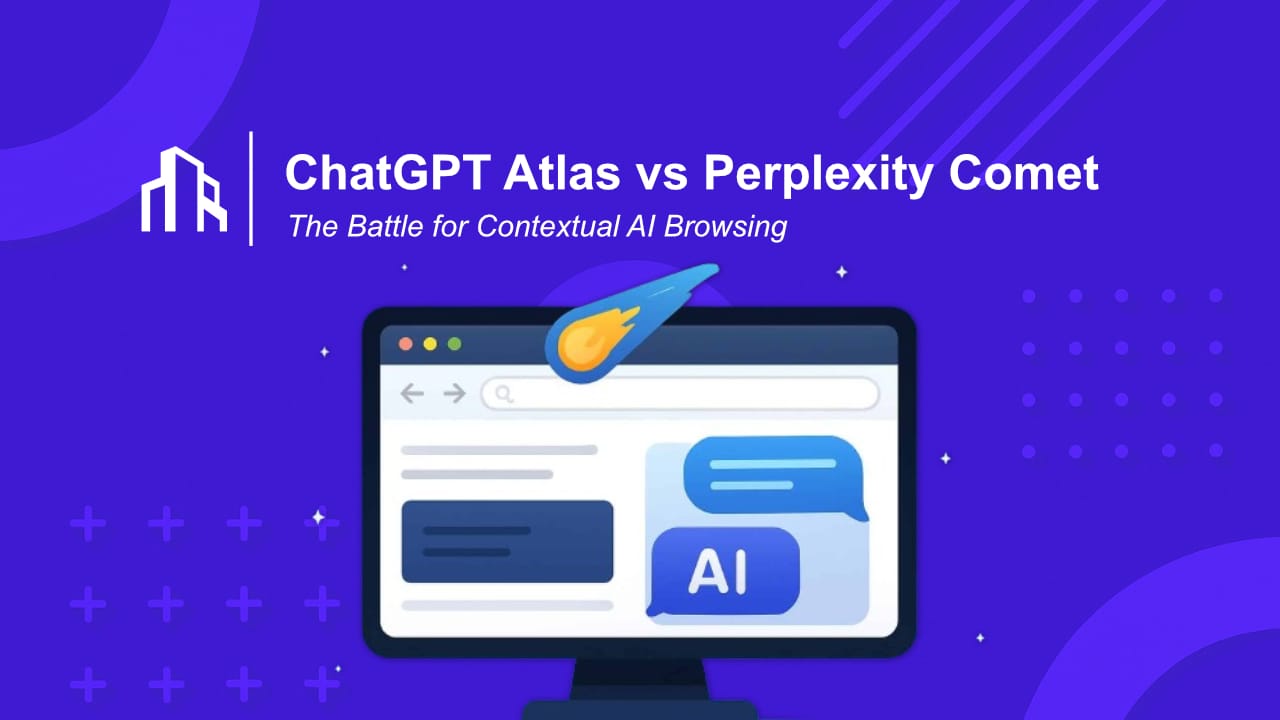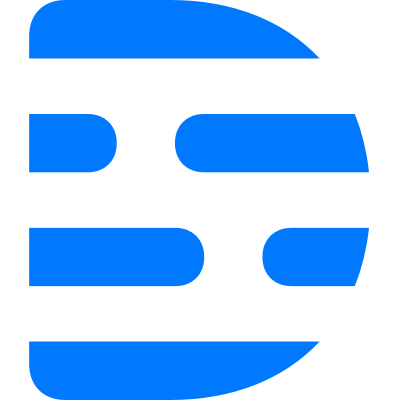ChatGPT Atlas vs Perplexity Comet: The Battle for Contextual AI Browsing

The web is changing faster than ever. What started as chat-based AI tools is now evolving into context-aware assistants that live inside your browser. Two platforms are leading this shift: ChatGPT Atlas by OpenAI and Perplexity Comet Perplexity’s upcoming browser-native interface. Both aim to make AI feel less like a chatbot and more like a companion that understands what you see, what you read, and what you need to do next.
But while they share a vision, their execution and their philosophy differ sharply.
The Rise of Contextual AI Browsing
Until recently, AI lived in isolated apps. You asked a question, got an answer, and copied the result elsewhere. Contextual AI browsing flips that model. Instead of users adapting to AI, AI adapts to what’s happening on screen.
OpenAI and Perplexity are racing toward the same goal: creating AI that works where you work in documents, articles, emails, and web apps. The difference lies in how deeply each one blends into your workflow and how much control it gives back to you.

Descript
AI-powered audio and video editing platform with transcription, screen recording, and publishing features. Perfect for teams looking to streamline content creation and repurposing.
- ✓ Transcription and AI-powered editing
- ✓ Screen recording and multi-track editing
- ✓ Publishing and collaboration tools
Discover smart AI tools to streamline your next automation
What ChatGPT Atlas Brings
ChatGPT Atlas integrates ChatGPT directly into your browsing environment. It’s not just a sidebar or an overlay it’s a full, interactive layer that stays aware of what you’re viewing.
Key strengths:
- Embedded intelligence: Atlas follows you across tabs and pages, offering summaries, translations, and writing help instantly.
- Privacy-first design: The user decides when ChatGPT can access a page, and every action is visible and reversible.
- Unified workspace: You can read, write, and automate inside one environment without switching windows.
- Context persistence: Atlas remembers what you were doing and picks up where you left off.
- Action-ready: It can assist with forms, draft messages, or adjust tone inline.
Atlas focuses on the experience of working with AI smooth, silent, and integrated rather than bombarding users with interface layers or extra dashboards.
What Perplexity Comet Offers
Perplexity Comet represents the next evolution of Perplexity’s “Answer Engine.”
Where Atlas embeds itself into browsing, Comet redefines search itself. It combines deep retrieval, live data access, and real-time contextual understanding.
Key strengths:
- Live web grounding: Every Comet answer is tied to current, verifiable web sources.
- Transparency: Users can see exactly which URLs informed each result.
- Real-time updates: Unlike ChatGPT’s static memory, Comet continuously pulls fresh data.
- Citation-based trust: Every insight links back to traceable sources a massive advantage for research, journalism, and compliance work.
- Speed: Comet’s backend retrieval engine is faster and more precise for data-heavy queries.
Where Atlas feels like a co-pilot for the web, Comet behaves more like an intelligent libraria constantly validating information, checking for updates, and ensuring accuracy.
Head-to-Head Comparison
| Feature | ChatGPT Atlas | Perplexity Comet |
|---|---|---|
| Primary Focus | Browsing + context-aware assistance | Search + verified web grounding |
| Integration Level | Embedded within browser environment | Integrated within Perplexity interface |
| Data Source | ChatGPT model + browsing context | Live web + retrieval-based engine |
| Privacy Model | Consent-based local control | Public data with transparent citations |
| Best For | Workflow automation, writing, summarization | Research, fact-checking, and live knowledge |
| Strength | Fluid workflow, inline actions | Accurate sourcing, verifiable results |
| Limitation | Limited real-time data | Less native workflow integration |

Rank Prompt
Analyze, test and improve your prompts with precision. Rank Prompt shows which AI responses perform best across ChatGPT, Perplexity and Claude.
- ✓ Compare prompt quality across AI models
- ✓ Visualize performance metrics in one dashboard
- ✓ Optimize copy and workflows data-driven

RunPod
Deploy and scale AI agents instantly. RunPod delivers GPU-powered cloud containers for training, inference and automation without any DevOps overhead.
- ✓ Launch GPU pods in under 60 seconds
- ✓ Pay only for active compute time
- ✓ Designed for startups building agentic AI
Both systems aim to eliminate friction, but they start from opposite ends:
Atlas prioritizes doing simplifying how you work online. Comet prioritizes knowing ensuring information is credible, current, and transparent.
Use Case Scenarios
1. Content and Communication
If your daily work involves emails, blog posts, or client reports, ChatGPT Atlas is the stronger option. It lets you edit, rewrite, and summarize directly within the browser. You can highlight a sentence, fix tone, or generate an entire paragraph without leaving your document.
2. Research and Verification
For analysts, journalists, or academic researchers, Perplexity Comet stands out.
It grounds every answer in a visible source and refreshes data dynamically, meaning you can always trace where the information came from essential for credibility.
3. Workflow Automation
Atlas enables small automations filling forms, drafting replies, formatting text all in real time.
Comet doesn’t handle workflow tasks yet but excels in knowledge retrieval.
4. Collaboration and Knowledge Sharing
Comet’s shareable answers and source transparency make it ideal for teams verifying information.
Atlas is better for personal productivity it helps individuals move faster through their daily digital workload.
Which One Is Right for You?
If your focus is productivity, choose ChatGPT Atlas.
It’s designed for those who live in the browser and want AI that moves with them. It enhances existing tasks rather than adding new ones.
If your focus is accuracy, choose Perplexity Comet.
It’s a better fit when trust, sourcing, and live data are non-negotiable perfect for research-heavy environments or regulated industries.
In short:
- Atlas = workflow co-pilot
- Comet = intelligent researcher
The Bigger Picture: Where This Is Heading
Both platforms signal the same trend: AI moving closer to the user.
Instead of typing prompts in isolated tools, we’re heading toward AI that observes, reacts, and assists contextually right where work happens.
The future won’t belong to chatbots, but to ambient AI invisible assistants that collaborate quietly inside the tools you already use.
OpenAI and Perplexity are shaping that vision differently:
- Atlas emphasizes immersion and privacy.
- Comet emphasizes accuracy and transparency.
Either way, the browser is no longer just a viewing tool it’s becoming an intelligent environment.
Final Thoughts
ChatGPT Atlas and Perplexity Comet both redefine what it means to interact with information online. Atlas transforms browsing into an active workspace; Comet transforms search into a verified knowledge engine.
They represent two sides of the same future one focused on productivity, the other on precision. Whichever direction you lean, both signal one truth: the age of static browsing is ending.
